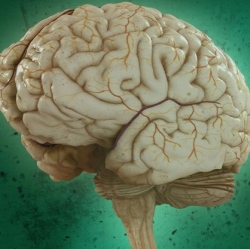
Scientists have launched what is set to become the world’s largest study of the effects of lack of sleep on the brain. A team, at Western University, Ontario, want people from all over the world to sign up online to do cognitive tests. The specially devised computer games test skills such as reasoning, language comprehension and decision-making.
I joined a group of volunteers trying out the tests and had my brain scanned while doing them.
Prof Adrian Owen, a British neuroscientist based at the Brain and Mind Institute in London, Ontario, is leading the study.
He told me: "We all know what it feels like to not get enough sleep but we know very little about the effects on the brain; we want to see how it affects cognition, memory and your ability to concentrate."
The team will collate the cognitive scores and see the variations depending on how much sleep people have had.
Everyone’s sleep requirements are different, but if enough people join the study, it may allow scientists to determine the average number of hours needed for optimum brain function.
I joined four volunteers spending the night at Western University, where we road-tested the brain games and were able to demonstrate how lack of sleep affects cognitive performance.
